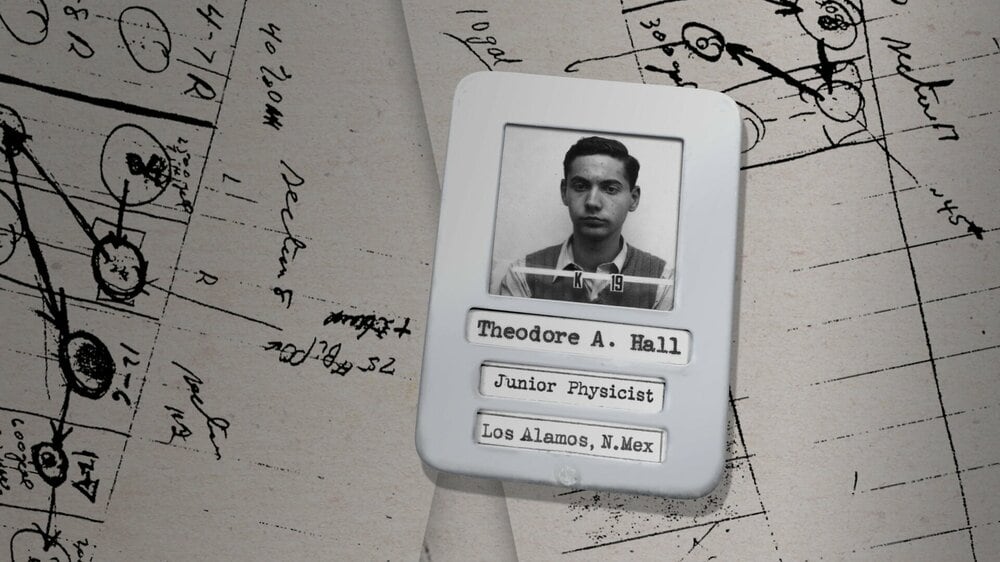If you saw Oppenheimer, this is a fascinating companion piece. The spy at the center of this documentary is Ted Hall, one of the elite group of physicists recruited by Oppie to head out to Los Alamos to build that horrifying bomb. He was just 18-years-old when he began the super secret work, the youngest scientist on the project, and was immediately concerned about the power of the weapon, so he and his best friend, the poet Saville Sax (a.k.a Savie), decided to share the research with the Soviets out of their belief that if the great powers both had the nuclear capability, there would be no more wars. He died in 1999 and was never charged for sharing nuclear secrets.
Some of the footage in the film is a dining room interview that Hall’s wife Joan conducted in the years before his death. She’s his biggest fan and other interviews with her throughout the film tell what she sees as his heroic story. His children and those of his bestie/conspirator Savie also tell their versions of the story. All of their lives were greatly influenced by their fathers’ choice to work with the Soviets. Though they were never caught, the FBI interviewed them numerous times and had them under surveillance for many years.
In hindsight, Hall’s actions did not do away with war. One might even say that we are closer to nuclear annihilation than ever right now. But at the time when Hall and his leftist friends were enthralled with America’s Soviet ally and communism, his choice as a pacifist and a scientist to share the information can be seen as understandable. Of course, Stalin didn’t turn out to be the hero they thought and the Soviets walking in to Czechoslovakia was a wake-up call. Nevertheless, there is never any remorse on Hall’s part except perhaps when Julius and Ethel Rosenberg were tried and sentenced to death for passing nuclear secrets to the Soviets. His friends and family talked him out of trying to intervene in their execution. Up until his death he still believed that he did what he did out of compassion.
The film is fortunate to have had Joan as a central element because she so enjoys talking about their life together, relating tidbits of their early relationship (told in dramatic reenactments), chatting with her children about her husband, and laughing at many of her own stories. I came away from the documentary thinking it would make a good dramatic film, and that maybe then I could understand a bit better Hall’s undying certainty that what he did was the right thing. Put this one on your list to watch, particularly if you saw Oppenheimer and wanted to know more about the leak.
On your streaming services and in select theaters now.

